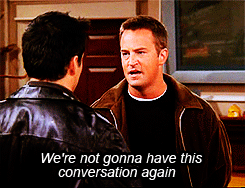Who remembers Alexandra Wallace? Back in 2011, that girl from UCLA? Fun memories, right?

Though as a topic a bit outdated, Alexandra Wallace’s “not the most politically correct” (I’m quoting you verbatim, girl) vlog, made viral, managed to infuriate a good many members of the Asian American community to the point of vlogging, in the forms of singing, skits, ranting, and discussion. Videos, vlogs, and blogs dug into the topic at different lengths from the perspective of many different races, but in the Asian American community, these responses managed to instigate and make public a discussion long due: the matter of education and ignorance.
Now, around the time Wallace was relevant, I watched her and these response videos with my brother, cousin, and friends, Asian and white, and I realize now the topic is a bit worn out, and that the consensus of reactions summed up to:

And the reaction wasn’t even so much “oh, this just goes to show that white people are so racist” (even though sadly that is what some people took from the situation). No, what happened after the flurry of videos that said “girl, oh no you didn’t” came videos, people, a community that became suddenly aware of the root of all Asian-American problems and stereotypes: we realized that people just don’t know.
The problem with stereotypes is that they are sometimes true. Just because something is a stereotype doesn’t automatically make it true or false. In most cases, however, as soon as one, just one stereotype is proven true (in, say, one person), then, as a human defense mechanism, we use that stereotype whenever applicable, to protect us, to make it easier to put people into tiny boxes.
Of course, we all know life doesn’t work that way.
As much as I and others complain about Asian stereotypes, it’s hard to completely deny them because, guess what: there’s a group out there that actually fits those stereotypes. That group, ladies and gentlemen, consists of our parents.

But it’s true. Bad driver? A+ student? Good at math and science? We’re loud, cheap, and we know kung fu? To some extent, all these stereotypes are represented by our parents, the generation before us: most of us Asian-Americans are second-generation. We can’t help that our parents’ actions define Asians; that’s just who people see. Also, the media… oh boy does the media play a role in representing the Asians. (That is to say not at freaking all.)

People are not going to notice an Asian kid, born and raised in San Jose, with a Californian accent, hoodie, and meatball sub in hand, and I’ll tell you that if people do notice that kid, they’re certainly not going to think “well all Asians must be like this.” Nope! They won’t give it a second thought.
But more on this second-generation business. Our generation of Asian-Americans, today, we have a voice, and we finally have a chance to be heard, and Youtube has been probably the most responsible for this. Youtube gives us the chance to say what we know everyone is thinking, and Youtube gives us the chance to clear it all up.
This brings me back to the matter of education and ignorance. Once we figured out the problem, some of us started speaking up, started answering the questions no one wants to ask out loud. David So, a (favorite) Korean Youtube vlogger, goes out of his way to explain Asian Stereotypes in three separate videos.
(But seriously. He cracks me up like no other. Go check him out. Shameless plug.)
All people really need is a little bit of clarification. So, if you find yourself a little bit out of the loop concerning these things, watch any of the videos I’ve linked to so far.
But seriously. Don’t guess, don’t assume, especially out loud… just ask. And for the Asian-Americans, just patiently, patiently explain which is fact and which is fiction.
Also, you’d better remember that conversation because
